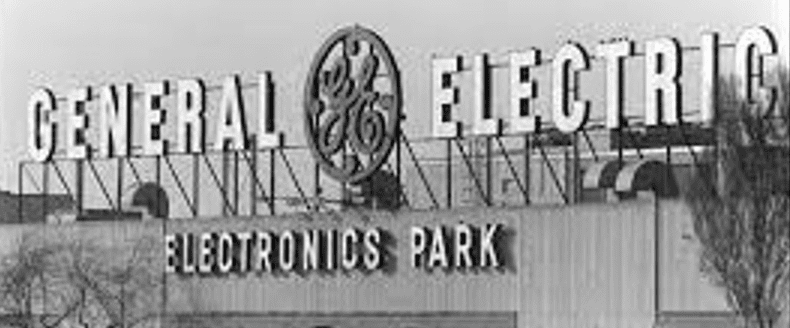Search Posts
Recent Posts
- GriefSpeak: Waiting for Dad – Mari Nardolillo Dias June 13, 2025
- Rhode Island Weather for June 13, 2025 – Jack Donnelly June 13, 2025
- Urgent call by Rhode Island Blood Center for Type O- and B- blood June 13, 2025
- Real Estate in RI: Ready, Set, Own. Pathway to Homeownership workshop June 13, 2025
- Outdoors in RI – Risky cattails, Fight the Bite mosquito report, 2A gun ban bill update June 13, 2025
Categories
Subscribe!
Thanks for subscribing! Please check your email for further instructions.

Tapping human capital through recognition – Mary T. O’Sullivan
by Mary T. O’Sullivan, contributing writer
“Workplace cultures that help people thrive begin with employee recognition.” – OC Tanner Report
The concept of workplace loyalty still baffles employers and employees. Unexpected layoffs, ghosting, and diminishing benefits make people question whether or not they belong on the job. Employers can’t understand why people won’t stay or why they quit so soon after being hired. In a partnership with Gallup, Workhuman IQ, the employee recognition platform, surveyed 4100 employees in the United States, the United Kingdom, Ireland, and Canada to determine how work has evolved in recent years among differing employee groups. The findings were eye-opening. According to the survey, only 1 in 4 employees felt connected to their company’s culture, and only 1 in 3 believed that they “belonged” at their organization.

The results showed that now, more than ever, leaders must take a more human centered approach to developing employees’ experience at work and marketing their employer brand. When I was a young employee, every time I drove past the big GE logo on the New York State Thruway, I felt a strong desire to work there. The branding and company pride were on full display for every person that drove by that huge neon sign. In 1985, my dream came true, and I joined GE “World”. The acceptance and recognition I received there made me love the industry, the people that worked there, and the company. Praise for my work was given freely. I received an award for helping new engineers figure out new systems. I was given more responsibility as time went on. My team and I often went out to lunch together, took walks outside around the black top parking lot, and played games in empty conference rooms, like Bridge, Scrabble, and Trivial Pursuit at lunch time. We traveled to other GE locations around the country to learn more about the business. I was taught how to be a leader and had incredible role models, both male and female, to emulate. The leadership team cared about people, and it showed. I loved my job.
It was a harsh blow when in, 1992, GE sold off its entire aerospace industry to Martin Marietta. People were crushed. There was a stampede to join other GE businesses around the country to keep GE benefits and maintain the GE cultural experience. After yet another sale to Lockheed in 1995, a new company was formed, Lockheed Martin. For the many remaining GE people, it just wasn’t the same. Everyone felt disconnected. People retired, quit, or took voluntary layoffs, bearing out the data uncovered by the Gallup/Workhuman IQ survey.
No other company I’ve worked for since has provided the same “human” experience as I had at GE in the 1980s and early 1990s. This echoes much of the results of the study conducted by Gallup and Workhuman IQ. Published in 2023, the study’s findings show how unaware leadership remains today in understanding the need to act more human, by simply recognizing people more in the workplace, and giving people a brand to be proud of.
According to their statistics, the researchers’ data revealed that 81% of leaders say that “recognition is not a major strategic priority for their organization.” 73% of senior leaders say “their organization does not offer managers or leaders best-practices training for employee recognition.” Sadly, nearly two out of three leaders say “their organization does not have a budget allocated to recognition.”
The numbers bear out the many benefits of recognition. When recognized, with even a verbal “thanks for your help”, people feel less burned out, less likely to seek other job opportunities, and more likely to have a genuine sense of well-being. And recognition doesn’t have to be monetary. A thank you card, a luncheon, a stretch assignment, a small show of appreciation like a pen with the company logo is sometimes all it takes. Those things are precious to employees, they show that leadership gets the message. I cherish my GE pens, coffee mugs, and program pins given to me over the years. These are signs that the company cared about me. They wanted me to be happy. And I worked more hours without overtime than at any other period in my career. I felt appreciated, identified with the brand, and part of the GE family.
Leaders need to wake up and get smart on recognition if they want their workers to be engaged and responsive. Say thank you, give out a Dunkin Donuts gift card once in a while, write a quick thank you for a job well done. Stop being stingy with your praise. Recognize goodness when it happens. You may not even need a special budget for it. Company stationery is free.
“Most employees are not getting what they need from recognition because their organizations are missing the mark.” – Gallup/Workhuman IQ Report “Transforming Workplaces Through Recognition.”
Connect with Mary:
___
Read all Mary’s columns here: https://rinewstoday.com/mary-t-osullivan-msol-pcc-shrm-scp/

Mary T. O’Sullivan, Master of Science, Organizational Leadership, International Coaching Federation Professional Certified Coach, Society of Human Resource Management, “Senior Certified Professional. Graduate Certificate in Executive and Professional Career Coaching, University of Texas at Dallas.
Member, Beta Gamma Sigma, the International Honor Society.
Advanced Studies in Education from Montclair University, SUNY Oswego and Syracuse University.
Mary is also a certified Six Sigma Specialist, Contract Specialist, IPT Leader and holds a Certificate in Essentials of Human Resource Management from SHRM.
